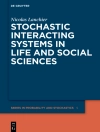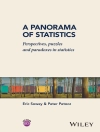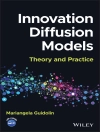This book presents statistical processes for health care delivery and covers new ideas, methods and technologies used to improve health care organizations. It gathers the proceedings of the Third International Conference on Health Care Systems Engineering (HCSE 2017), which took place in Florence, Italy from May 29 to 31, 2017. The Conference provided a timely opportunity to address operations research and operations management issues in health care delivery systems. Scientists and practitioners discussed new ideas, methods and technologies for improving the operations of health care systems, developed in close collaborations with clinicians. The topics cover a broad spectrum of concrete problems that pose challenges for researchers and practitioners alike: hospital drug logistics, operating theatre management, home care services, modeling, simulation, process mining and data mining in patient care and health care organizations.
Jadual kandungan
1 V. Nicoletta et al., A Cardinality-Constrained Robust Approach for the Ambulance Location and Dispatching Problem.- 2 K. Hwang et al., A choice model for estimating realized accessibility: case study for obstetrics care in Korea.- 3 M. Di Mascolo et al., A decision-making tool for the calculation of a robust planning for Home Service employees.- 4 S. Yalçındağ and A. Matta, A Decomposition Approach for the Home Health Care Problem with Time Windows.- 5 P. Landa et al., A Hybrid Simulation Approach to face/analyze patient boarding in Emergency Departments.- 6 H. Jang et al., A Location Problem for Medically Under-served Areas in Korea.- 7 N. Lahrichi et al., A New Decomposition Approach for the Home Health Care Problem.- 8 D. Miller et al., A practical approach to machine learning for clinical decision support.- 9 M. Koyuncu et al., A Simulation Model for Optimizing Staffing in the Emergency Department.- 10 K. Karubeet al., Analysis of Facility Layout in Elderly Day Care Facility.-11 D. Scheinker and M. Brandeau, Analytical Approaches to Operating Room Management: Projects at Lucile Packard Children’s Hospital Stanford.- 12 Y. Chen et al., Appointment Overbooking and Scheduling: Tradeoffs between Schedule Efficiency and Timely Access to Service.- 13 C. Caprara et al., Crowding in Paediatric Emergency Department, a Review of the Literature and a Simulation-Based Case Study.- 14 M. Cildoz et al., Dealing with stress and workload in emergency departments.- 15 M. Painchaud et al., Discrete-Event Simulation of an Hospital Transportation Service.- 16 P. Cappanera et al., Empirical Data Driven Intensive Care Unit Drugs Inventory Policies.- 17 P. Mic and M. Koyuncu, Estimation of Case Numbers at Pandemics and Testing of Hospital Resource’s Sufficiency with Simulation Modeling.- 18 G. Carello et al., Handling Time-Related Demands in the Home Care Nurse-to-Patient Assignment Problem with the Implementor-Adversarial Approach.- 19 A. Guinet, How to protect a hospital against cyber attacks.- 20 A. Roshanghalb et al., Identifying ‘Hospital Effect’ on Performances for their Improvements: The Case of The HF Administrative Data.- 21 J-Y. Yu and K-L. Huang, Improving Emergency Medical Services with Time-Region-Specific Cruising Ambulances.- 22 Mining the patient flow through an Emergency Department to deal with overcrowding.- 23 G. Ielpa el al., Outpatient Day Service Operations: a Case Study within Rheumatology Diseases Management.- 24 W. Abo-Hamad, Patient pathways discovery and analysis using process mining techniques: An Emergency Department case study.- 25 F. Schäfer et al., Patient-Bed Allocation in Large Hospitals.- 26 P. Cappanera and M.G. Scutellà, Pattern generation policies to cope with robustness in Home Care.- 27 A. Stefanini et al., Service Reconfiguration in Healthcare Systems: the Case of a New Focused Hospital Unit.- 28 B Resta et al., Strategic Operations Management in Healthcare: a reference model for Cardiac Rehabilitation.- 29 J. Coton etal., User-centered development of an information system in patient’s motor capacity evaluation.












